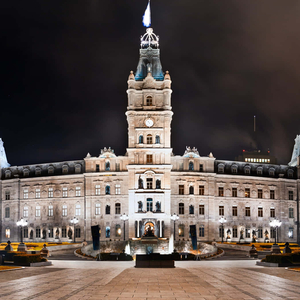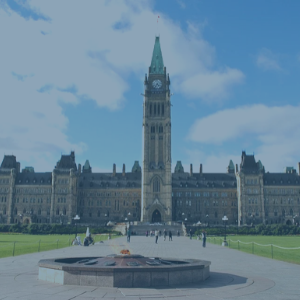
A new online poll by INNOVATIVE of 2,738 eligible voters conducted from April 22 to May 5, 2021 shows the stars may be aligning for the federal Liberals. Fuzzy favourables for the federal budget and vote leads in all three of Canada’s largest provinces are setting the stage for an early election call.
Only about half of Canadians are paying attention to the federal government. This is much lower than for provinces such as Ontario. The impact of what Canadians are hearing is slightly negative with 35% saying it makes no difference, 30% feeling more favourable, and 35% less favourable.
Overall federal approval appears to have disconnected from COVID-19. While the federal government’s approval on COVID has been slipping in 2021, overall approval is holding steady.
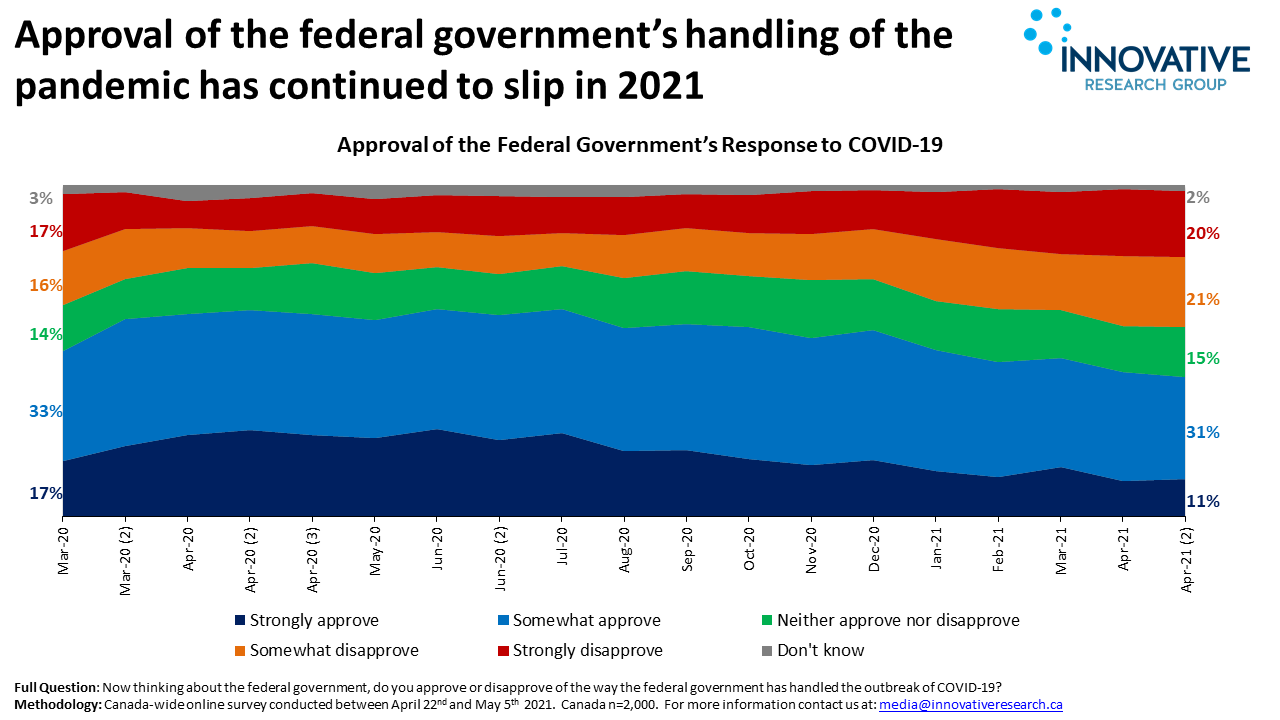
The budget has likely helped to hold overall approval up. However, while overall measures of budget reaction are more positive than normal, more detailed benchmarks show some vulnerability on the economy and health care.
Roughly half (51%) of Canadians paid attention to the budget. This is well below typical budget awareness.
Reaction is more favourable than most budgets, with 39% satisfied and 34% dissatisfied.
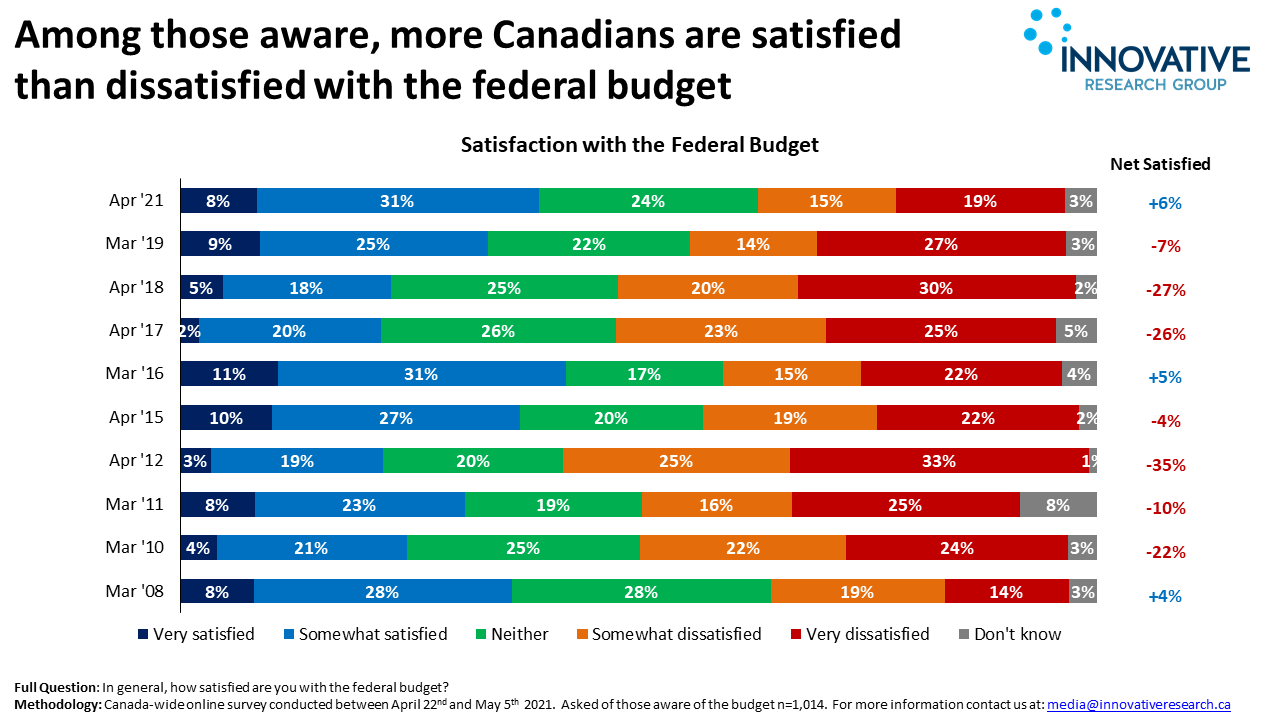
One third (32%) expect the budget to have a direct impact on them. Among those expecting a personal impact, more say it will be negative (57%) than positive (33%). These numbers vary a lot across the budget. This type of reaction is far from the budget’s all time worst (90% negative) but well short of its best (52%).
All three economic measures show a plurality of Canadians are uncertain about the economic impact of the budget or feel it will have no impact. Those who feel it will have an impact are equally divided on whether it will hurt or help the economy.
Views on health are similar to the economy with more saying no difference and negative impacts higher (25% worse off) than positive (19%) better off.
This budget has a relatively high perception among respondents that taxes and user fees will increase (more user fees 48%, more taxes 53%).
In terms of emotion, Canadians are more likely to say the budget leaves them feeling anxious (39% at least sometimes) than most previous budgets but much less angry (32% at least sometimes).
How does this translate into political support?
On leadership, the big picture has not changed much. Trudeau’s favourables are holding steady with slightly more positive than negative view but on best to be Prime Minister Trudeau dominates with 44% support, as much as Singh and O’Toole combined.
Singh’s favourables improved marginally with a net favourable score of +12, 8 points higher than Trudeau. O’Toole experienced another marginal decrease, dropping to -19.
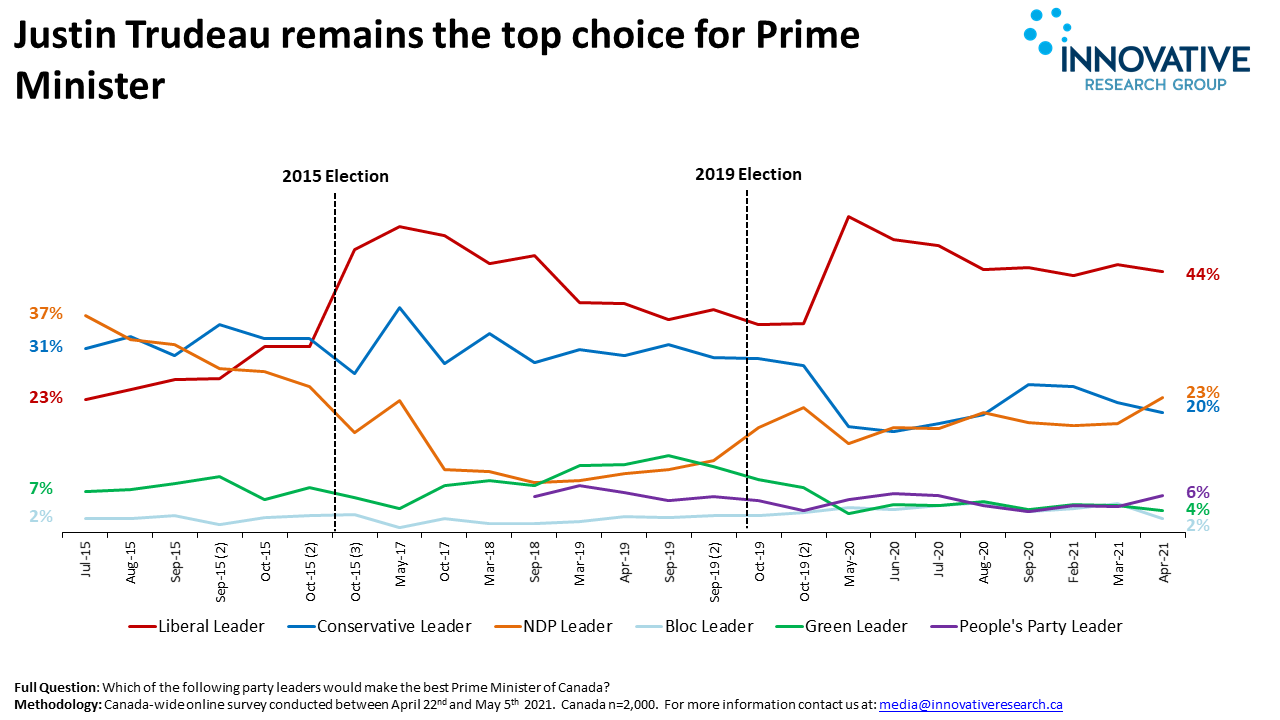
In another blow to O’Toole, Singh has pulled slightly ahead of O’Toole on “best to be Prime Minister”. O’Toole slipped 2 points to 20% while Singh picked up four-points and now sits at 23%.
The Liberals (40%) now enjoy a 13-point lead over the CPC (27%) in the decided vote while the NDP at 18% are at the highest we have seen since the election.
Regionally, one of the biggest shifts we have seen this spring is in BC where the Liberals now lead with 37%, the NDP are at 28% and the CPC trail at 19%.
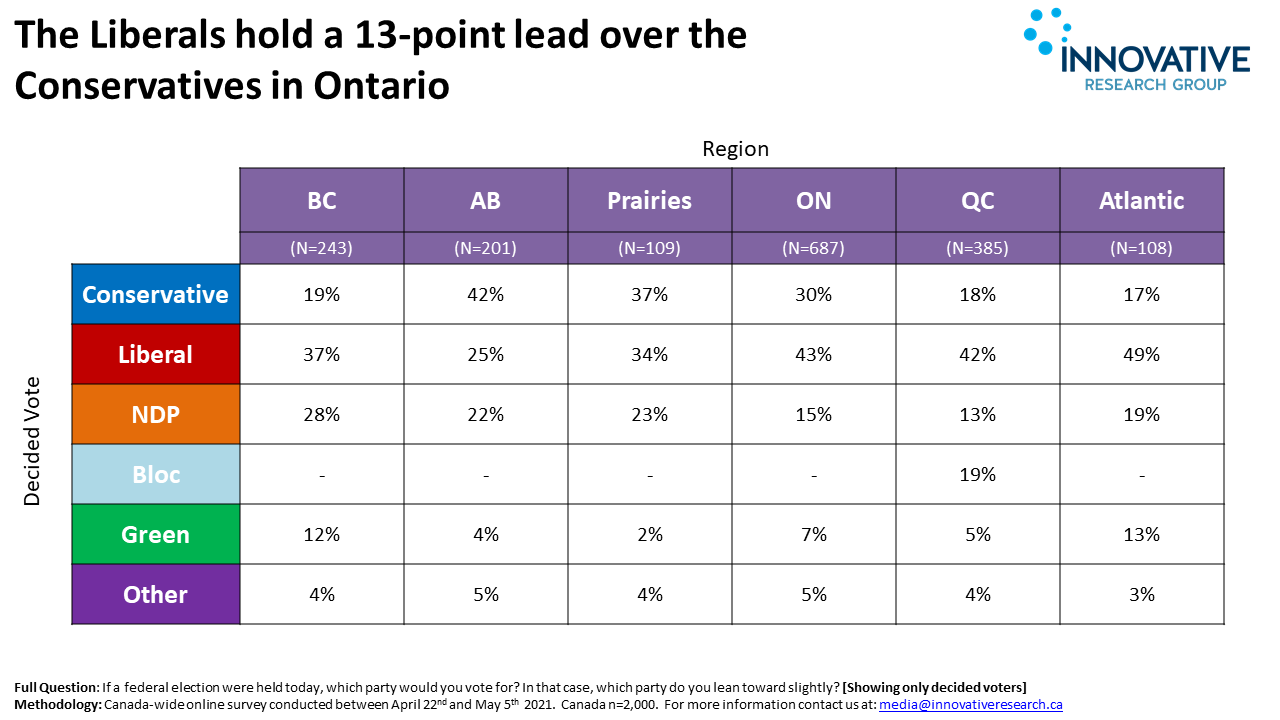
The Liberals are also looking strong in both Ontario where they lead the CPC by 13 points and Quebec where they lead the Bloc by 23 points.
Looking at underlying attitudinal segments, we see the Liberals challenging their opponents among their opponents’ base segments. The Liberals are statistically tied with the CPC among Deferential Conservatives and 12 points ahead of the NDP among Core Left voters. They also win among all four economic clusters and they win among voters who are not aligned with any party.
It is hard to see things getting much better for the Liberals. They have significant leads in all three of the largest provinces. Trudeau continues to lead as “best to be Prime Minister” while O’Toole, his key challenger, continues to struggle.
There are some signs of weakness in the underlying numbers. The winds of public debate are starting to blow against the government. COVID approval is declining. The budget generated some fuzzy favourables but shows some vulnerability on health, the economy, and pocketbook issues. It is hard to imagine the government waiting beyond summer to call an election before events turn on them.
For the full report, click here!


